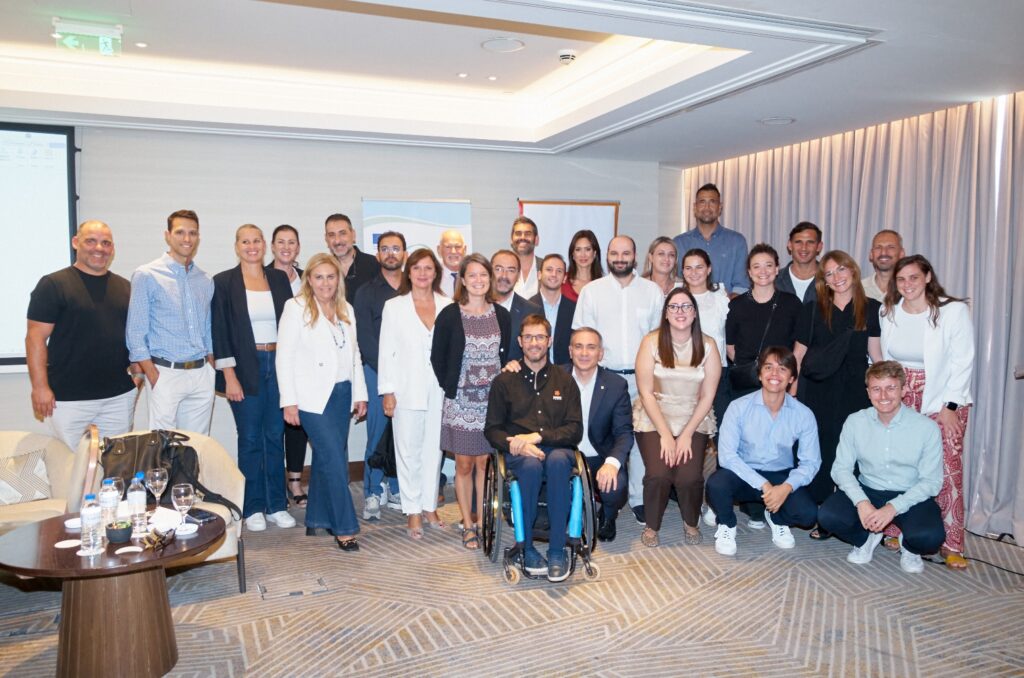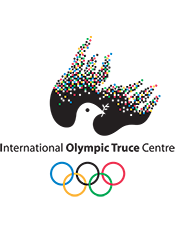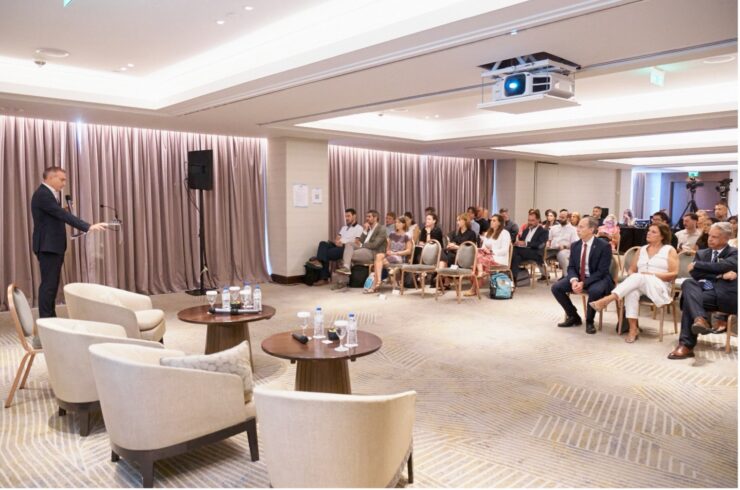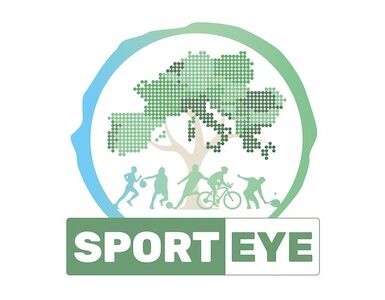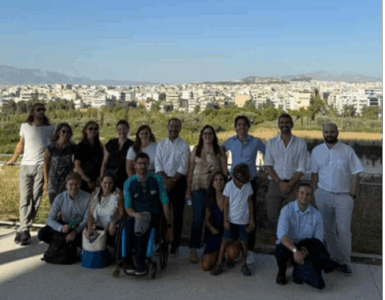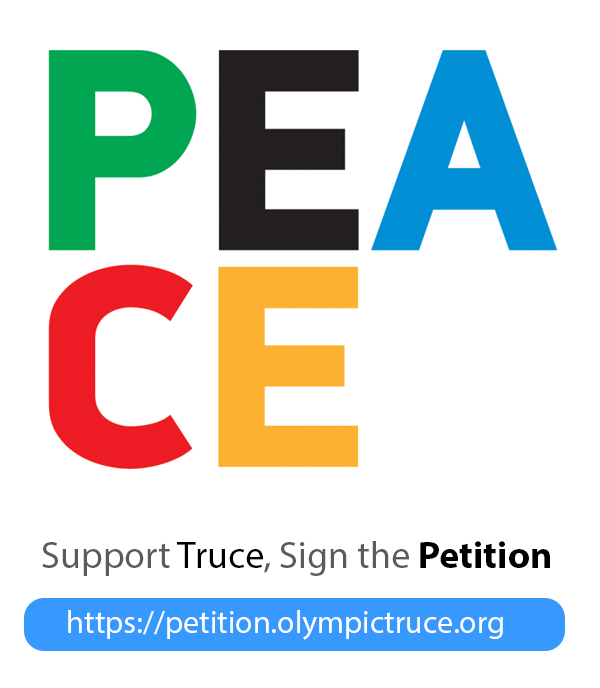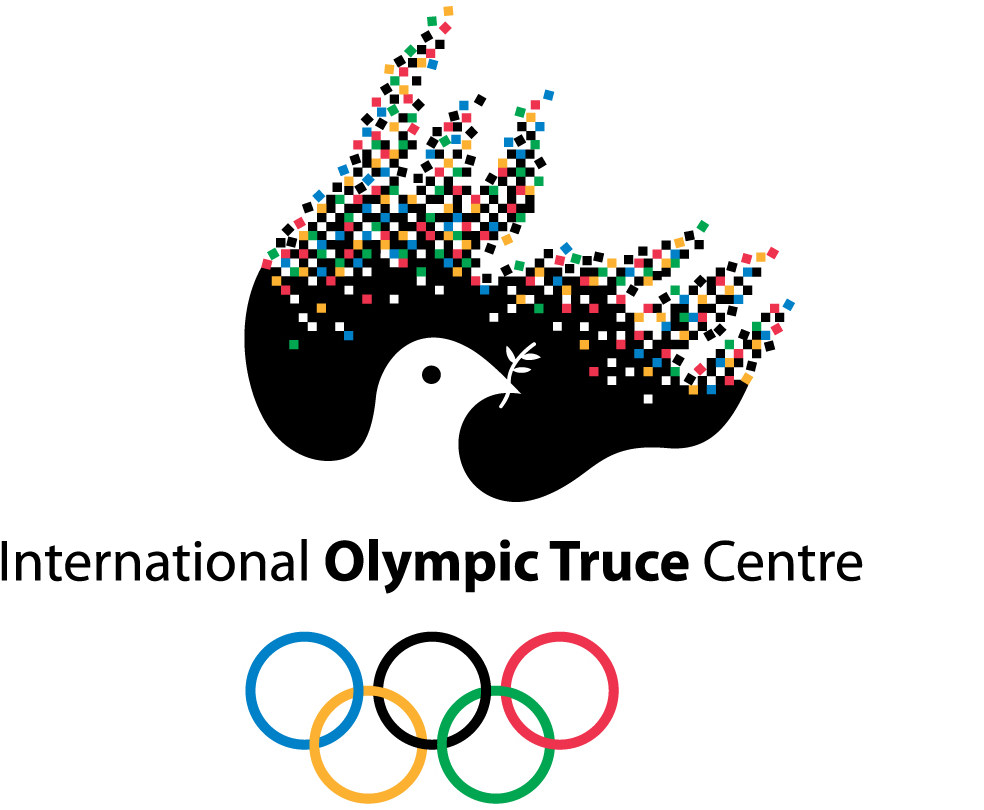23 September 2025, Athens, Greece
The final conference of the SPORTEYE project, themed “Driving Environmental and Social Impact Across Europe,” took place on 23 September 2025 in Athens, hosted by the International Olympic Truce Centre. Organized under the framework of the “Empowering Your Sport Club, Children and Youth for the Environment in the Mediterranean Region” (SPORTEYE) project, the event was held in alignment with the European Week of Sport (#BeActive), celebrating the EU’s commitment to promoting active lifestyles across Europe. SPORTEYE is a two-year transnational and multi-sectoral initiative coordinated by the International Olympic Truce Centre (IOTC) and co-funded by the European Union within the Erasmus+ programme, involving partners from the Olympic Movement, Sport for Development, Academia, and civil society.
Representatives from organizations such as the Paris 2024 Organising Committee for the Olympic and Paralympic Games, the Hellenic Olympic Committee, the Hellenic Football Federation, the Universities of Peloponnese, Thessaloniki and Thessaly alongside several other experts, took part in the hybrid conference as keynote speakers and panelists and shared information on best practices, policies, and sustainability action plan, training, and knowledge and adoption of the UN SDGs, in view of showcasing how sport can be a powerful driver of environmental and social change.
The conference opened with remarks by Mr. Mavrotas, Secretary General of Sport, and Dr. Constantinos Filis, Director of IOTC, both highlighting the importance of environmental and social responsibility in sport. The opening remarks were followed by a keynote speech from Ms. Justine Marchal-Appleton of the Paris 2024 Organising Committee. Two high-level panels featured distinguished speakers: Constantinos Liarommatis (Hellenic Olympic Committee), Ioannis Konstantopoulos (The Sports Footprint), Rafael Muela Pastor (Fundación Real Betis Balompié), and Yannis Charalampakis (Hellenic Football Federation) in the first panel on advancing sustainability in sport; and Efthalia Chatzigianni (University of Peloponnese), Fotini Arampatzi (University of Serres), and Nikos Comoutos (University of Thessaly) in the second panel on translating policy into practice. The conference concluded with closing remarks from George Papandreou, President of IOTC and former Prime Minister of Greece.
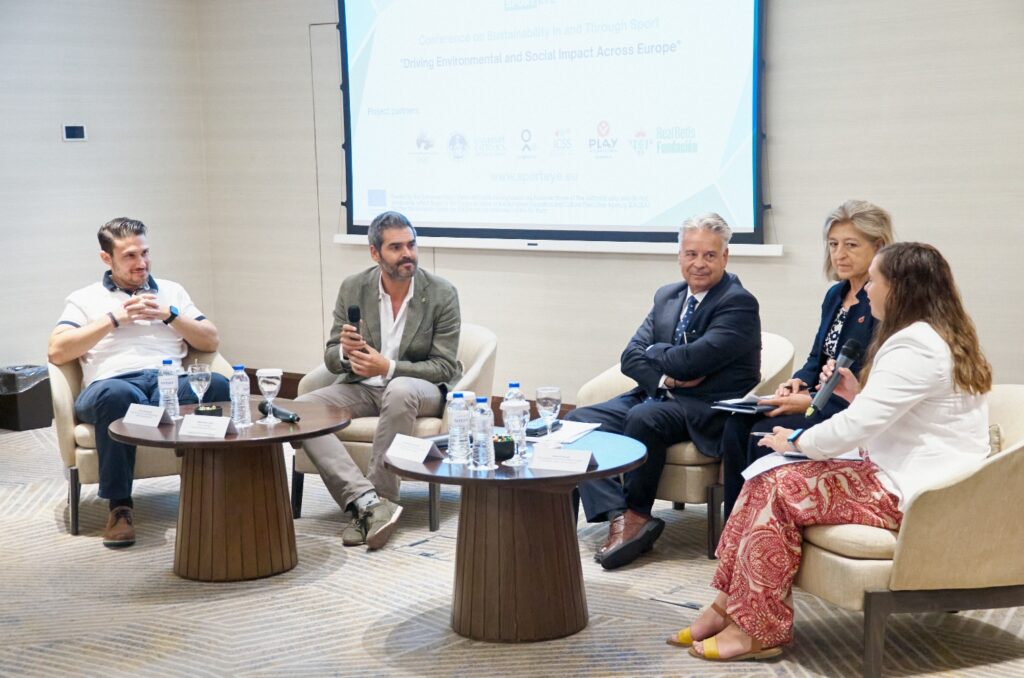
During the conference and after more than two years of work and dedication, , the partners had the opportunity to present the final project outputs, such as the guide on “Analysis on Good Practices on the Knowledge and Adoption of the UN SDGs by Organisations in the Field of Sport”, the tailor-made educational programme “Promoting Sustainable Development through Sport”, the SportEYE e-Community, as well as Policy Recommendations.
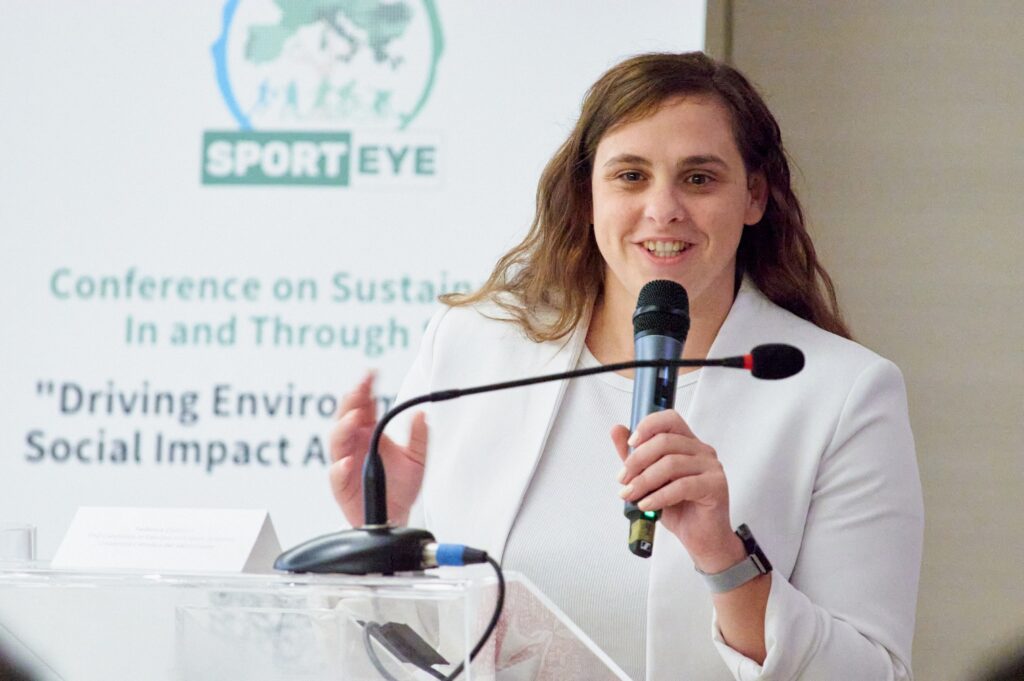
Representatives of all project partners and senior officials attended the conference, commented on the importance and impact of the SPORTEYE project in their remarks.
George Mavrotas, Secretary General of Sport, Hellenic Ministry of Education and Sport, said:
“Sustainability is strongly connected to integrity, and in this sense, sport is highly relevant not only as a field of application but also as a channel for delivering this message to society. If sport is not value-based, it cannot truly be sustainable. The social values of equality, non-discrimination, tolerance, and solidarity are fundamental both to sustainability and to sport itself. Sport integrity and sustainable sport are therefore inseparably interrelated. Through SportEYE, these values are brought to life and explained through the lens of sustainability.”
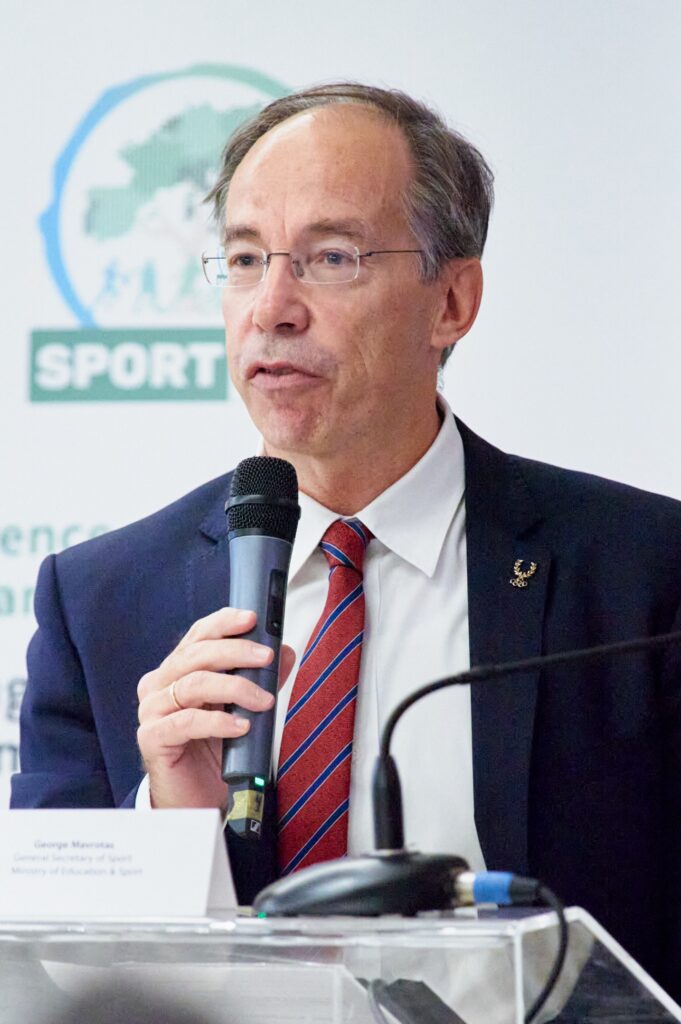
George Papandreou, President, International Olympic Truce Centre, said: “Sport is a catalyst for change, a laboratory of good governance, a vehicle for sustainability and peace. Local clubs can become green actors for climate action, safe spaces of inclusion, examples of transparency and accountability. The Mediterranean is so vulnerable to climate change, but it can become a laboratory for solutions that inspire the world. Education through sport can give our youth the skills, the resilience, and above all, the values they need to resist division and build shared societies”.
Justine Marchal-Appleton, Paris 2024 Organising Committee for the Olympic Games, said:
“During the Paris 2024 Olympic Games, we sought to reinvent the symbols of the Games—not only to embody the values of sport and universality, but also to champion sustainability. Paris 2024 set a new standard by cutting carbon emissions by more than half compared to previous Games, relying on 95% existing or temporary venues, powering all operations with renewable energy, embedding circular economy practices, and leaving behind a lasting social and environmental legacy. In the same spirit, the SportEYE project carries this vision forward by equipping clubs, communities, and youth with the tools and values needed to make sustainability an integral part of sport at every level.”
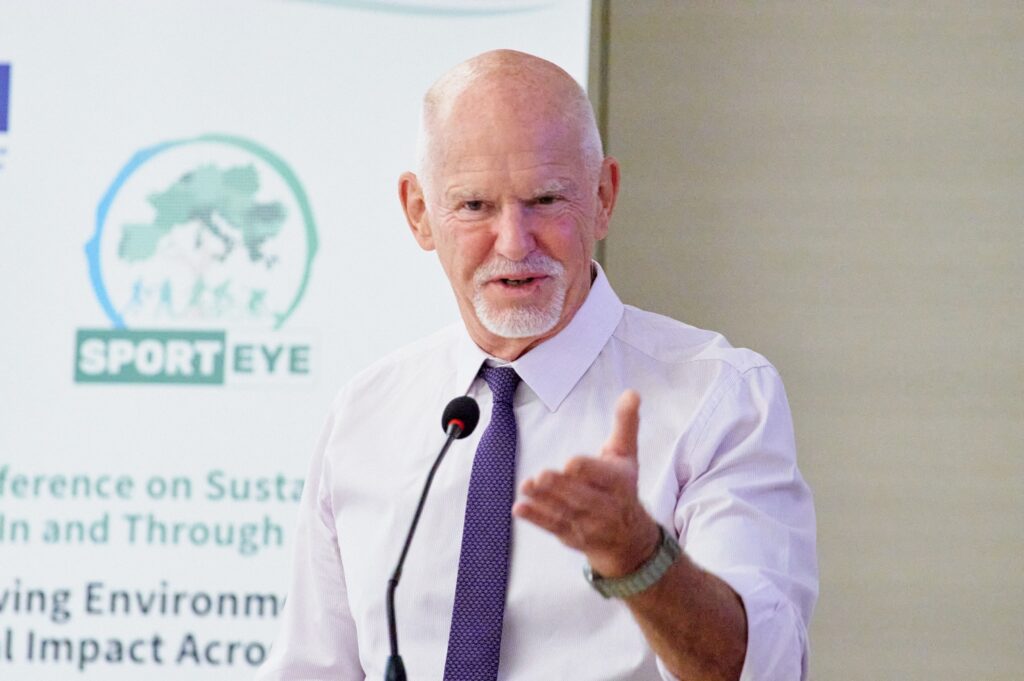
Dr. Constantinos Filis, Director, International Olympic Truce Centre, said: “Sustainability today is no longer an abstract idea, it is about the way we live, the choices we make, and the legacy we leave behind. Sport, because of its universal reach, has a unique ability to inspire and to influence those choices. Sustainability must become part of the everyday reality of sport clubs, federations, schools, and communities. That is precisely what SportEYE has aimed to do: to empower children, young people, and sport clubs across the Mediterranean to see sustainability not as an external obligation, but as an integral part of sport itself”.
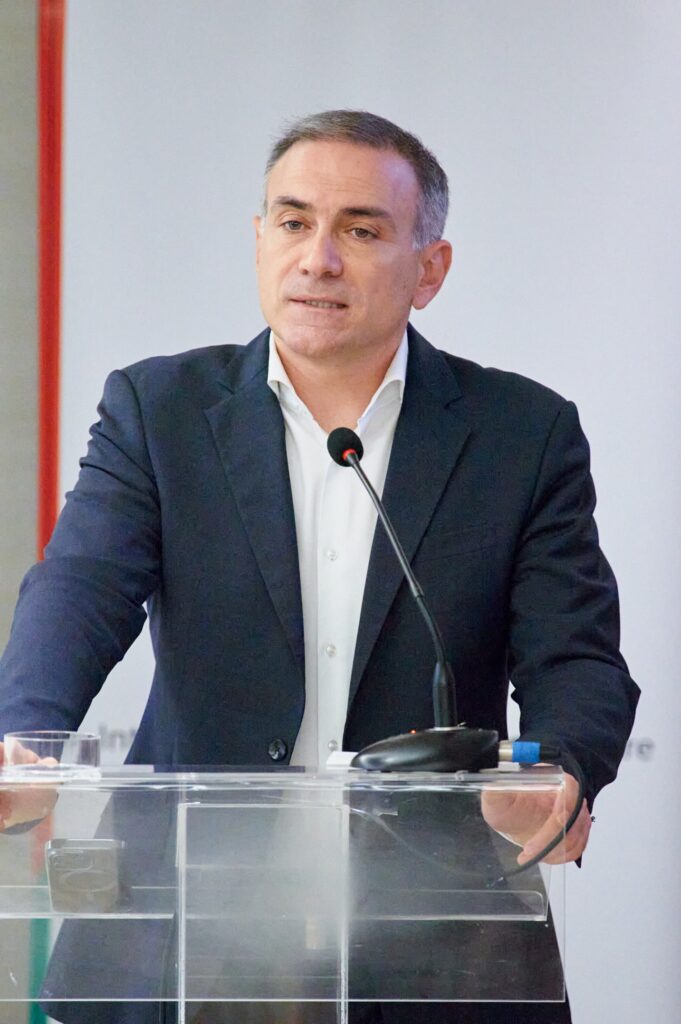
SPORTEYE was designed under the horizontal priority “Environment and fight against climate change” of the Erasmus+ Programme, with a special focus in “Promoting education in and through sport” with the aim to support skills development in sport and environmental sustainability. The project was jointly implemented with the International Centre for Sport Security Europe (ICSS Europe), Futbol Mas Spain, PLAY International France, Universita Cattolica del Sacro Cuore (UCSC), and Fundacion Real Betis Balompie.
